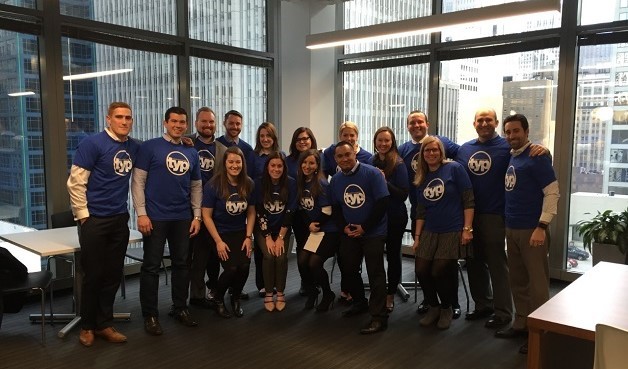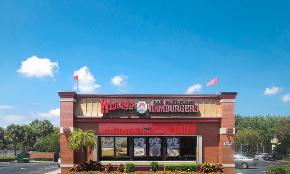Transwestern Young Professionals national kick-off meeting in Chicago. Representatives selected for the national committee met in Chicago to develop the rollout plan.
CHICAGO—These days it seems every real estate conference has a number of sessions devoted to the impact millennials are having on the industry, whether the sector under discussion is multifamily, industrial, retail or office. But real estate firms themselves have also started to consider how they can meet the challenges presented by having a growing number of millennials as employees.
Transwestern, for example, now has about 650 millennial employees across the country and has rolled out a collection of mentorship programs to identify young leaders among its 35-and-under staff members, increase the retention of younger workers, and tap into their particular knowledge and skill sets to help build the business.
Company officials are proud that it made Fortune Magazine’s 100 best workplaces for millennials this year. The company was ranked 27th, the only real estate firm on the list, just two places behind Google, but four places ahead of Twitter.
“Rather than patting ourselves on the back, we want to make sure that we are on this list every year,” Transwestern’s Larry Serota tells GlobeSt.com. The Chicago-based executive vice president chairs its Emerging Leaders Council in conjunction with colleagues Jonathan Tootell in New York and Phil Wiegand in Dallas, both serving as vice chair.
The 22 council members, chosen by company leadership, represent every service provided by Transwestern and every region of the US. But the efforts go beyond this elite group. In April, Serota says the company started a youth professionals group to engage and develop all employees 35-and-under through a host of programs, mentorship opportunities and other team building initiatives.
A chief goal of these groups and activities is to make sure Transwestern hangs on to its talent. “Millennials tend to move around from job to job,” Serota says, far more than other age cohorts. Recent data according to the Bureau of Labor Statistics show that the average tenure of millennials with their current employer is 2.3 years, about half of the average US worker.
“We want everyone to know from day one that this is a company that promotes from within; there is not a glass ceiling in place,” he says. Serota took only ten years to go from an internship to his present position. “I would not have had that opportunity at some of our competitors.” Transwestern is also creating a formal mentorship program that matches young people with experienced leaders. “The message we’re looking to deliver is that this is a career, and not just a job.”
One thing that interests millennials more than other generations is “a desire to do more than their day jobs,” says Serota, and engage in public service activities “even if they don’t have the big dollars yet.” To help its young professionals get involved in charitable efforts, the company has just started a national philanthropic partnership with the Make-a-Wish Foundation, the first time it has formed such a close relationship with a nonprofit. The partnership was kicked off early last month at Transwestern’s headquarters in Houston, where dozens of the younger employees held a charity stair climb event.
And through the leaders’ council and the young professionals group, Transwestern also holds a number of social and educational events, giving their youngest employees the opportunity to meet with top leadership, including president Chip Clarke. Serota says that the firm’s executive leadership learns from and responds to this interaction as well. A clear desire from the millennial generation is to have more transparency when it comes to corporate decision making and get more feedback from supervisors. “I think we are listening to that.”





 Transwestern
Transwestern












 Copyright © 2024 ALM Global, LLC. All Rights Reserved.
Copyright © 2024 ALM Global, LLC. All Rights Reserved.